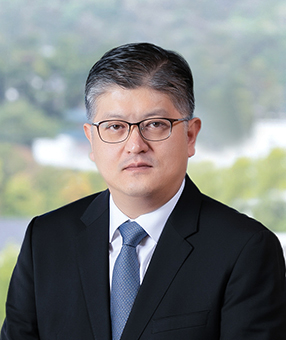As a result of the Enforcement Decree of the Industrial Cluster Development and Factory Establishment Act (the “Amended Enforcement Decree” of the “Industrial Cluster Act”), which took effect as of July 10, 2024, the regulations related to the securitization of assets and operation by the occupants of industrial complexes have been relaxed.
The Industrial Cluster Act in effect prior to the Amended Enforcement Decree restricted the disposal of the land and factories, among others, located within industrial complexes, which made it difficult for the occupants of the complexes to raise funds and maintain operational flexibility.
To deregulate such restrictions relating to industrial complexes, the Ministry of Trade, Industry and Energy (the “MOTIE”) and the Ministry of Land, Infrastructure and Transport (the “MOLIT”) jointly announced the “Plan to Eliminate Impossible Regulations in Industrial Complex Locations” on August 24, 2023. Subsequently, the Industrial Cluster Act was amended (Act No. 19955, January 9, 2024, partial amendment), which was followed by the implementation of the Amended Enforcement Decree, completing the organization of the subsequent regulatory rules and regulations aimed at easing restrictions related to industrial complexes.
The key points of the Amended Enforcement Decree are as follows:
|
1. |
Facilitating Financing Through Asset Securitization of Industrial Land and Others |
-
The occupants of industrial complexes located outside of the Seoul Metropolitan Area can now raise funds by utilizing a sale-and-leaseback structure for land and factories, among others, located within industrial complexes (collectively, “Industrial Complex Sites”) vis-à-vis the persons falling under items (i) to (iii) mentioned below. The relevant asset securitization contract must include a provision granting the occupant the right of first negotiation in case of the sale of Industrial Complex Sites after the end of said asset securitization contract.
|
(i) |
Financial investment firms under the Financial Investment Services and Capital Markets Act (“FSCMA”); |
|
(ii) |
Real estate investment trusts (“REITs”); or |
|
(iii) |
Designated public institutions under the Act on the Management of Public Institutions. |
-
However, as (i) whether securitization through funds (collective investment vehicles) under the FSCMA is permitted remains uncertain, and (ii) the specific details and procedures of the first negotiation right held by the occupant after contract termination lack clarity, it appears that further analysis and review of the Amended Enforcement Decree is necessary.
|
2. |
Easing Restrictions on Disposal of Industrial Complex Sites |
-
In principle, the Industrial Cluster Act restricts a transfer of Industrial Complex Sites by the initial purchaser to third parties for a certain period of time (i.e., for a period of five years following the filing of the factory construction completion report or business commencement report) (“Disposal Restriction”).
-
However, the Amended Enforcement Decree now exempts the application of the Disposal Restriction to the occupants who make in-kind contributions of the Industrial Complex Sites to joint venture corporations in which they have equity interest.
|
3. |
Expanding Qualified Businesses Within Industrial Complexes |
-
The scope of businesses that are permitted to be carried out within industrial complexes has been broadened to include “legal services,” “accounting and tax-related services” and “other financial investment businesses.”
The Amended Enforcement Decree is significant in that it has now enabled the occupants of industrial complexes to raise funds and engage in more flexible business operations by deregulating existing laws and regulations. This development is expected to provide additional venues through which the occupants of industrial complexes can secure funds for facility improvements, operating expenditures and R&D initiatives. However, given that views on how to interpret and apply the Amended Enforcement Decree may vary between the regulatory bodies and interested parties, further analysis and review will be necessary. To that end, industry participants should remain on the lookout for any subsequent guidelines that may be issued.










